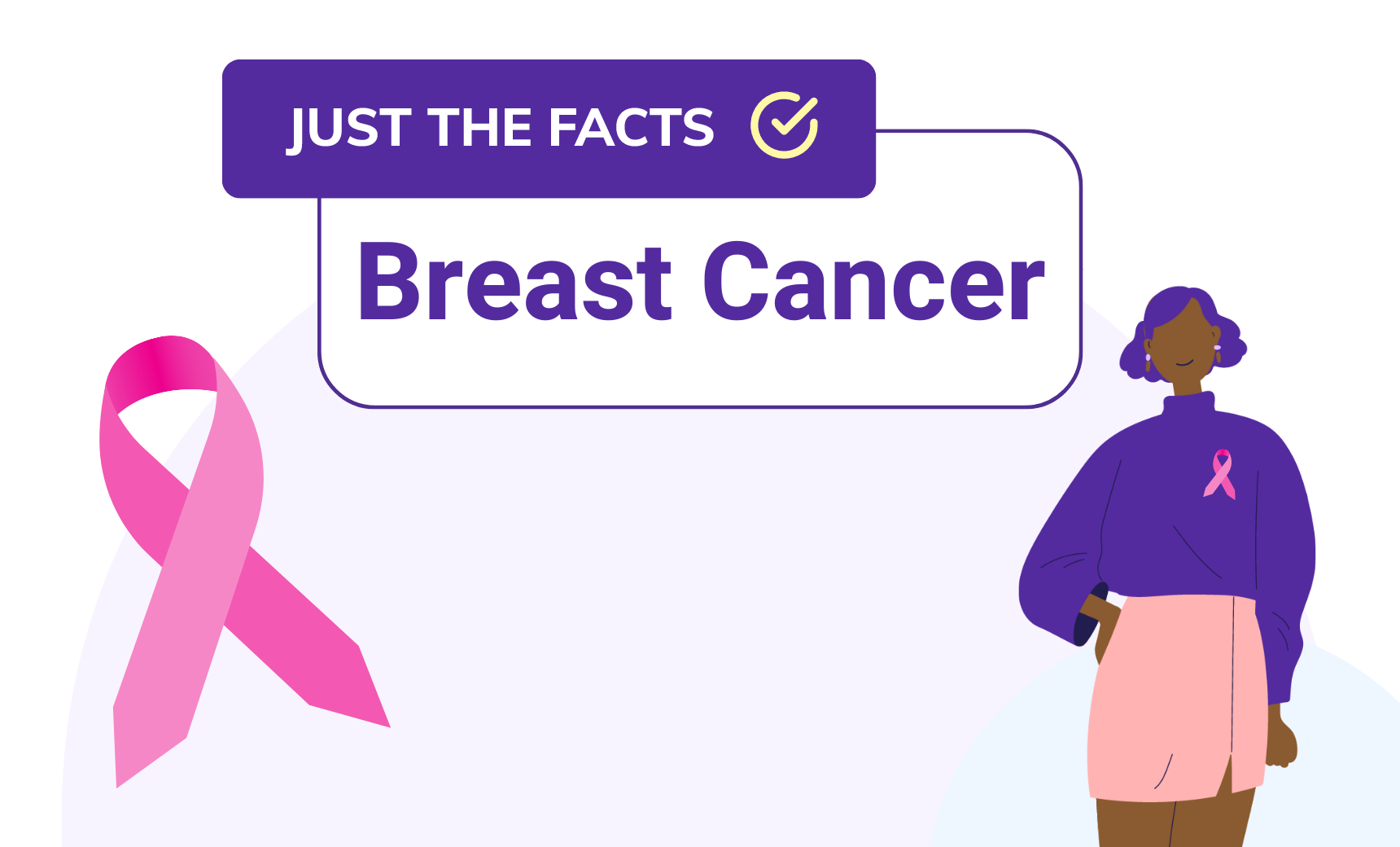
Just the Facts: Monkeypox
A rare, but potentially serious, disease—and one that's spreading. Here's what to know about this pox outbreak.
Maybe you’ve seen it on the news or on social media: Monkeypox, a new virus on the rise. As states and counties around the US declare a state of emergency to activate resources to stop the spread, take the time to learn about this disease and how you can protect yourself.
What is monkeypox?
Monkeypox is a viral disease that causes a tell-tale rash, as well as fever, muscle pain, and other symptoms. Monkeypox is similar to smallpox, though milder. The virus has been in the news because of the 2022 outbreak, the first of its kind outside of Africa.
What does it have to do with monkeys?
Monkeypox is a zoonotic poxvirus, meaning that it’s a pox virus that has infected across species and jumped from one animal to another. Other zoonoses include salmonella, early HIV strains, rabies, and Ebola. Depending on the disease, zoonotic pathogens may be passed through animal bites, skin contact, foodborne illness, scratches, bug bites, or other means. The virus was first identified in lab monkeys in 1958, hence the name. However, rodents are actually the most common vectors of the disease.
How is monkeypox spread?
Transmission most often occurs during direct contact with skin lesions or body fluids. Currently, outbreaks are most closely linked with skin-to-skin contact during sex and kissing, but it can also happen from other forms of contact. In some cases, it’s passed through touching clothing, bedding, shared objects, or surfaces or through contact with respiratory secretions via prolonged face-to-face contact.
Can anyone get monkeypox?
Yes. Though monkeypox has primarily been spreading through sex and cases have spiked in queer male communities, anyone can get it, including children.
Is monkeypox an STD?
Monkeypox is a pox virus that can be spread through sex, but it is not classified as an STD.
What are the symptoms?
Monkeypox may present asymptomatically, mildly, or severely. Symptoms may include fever, headache, muscle aches, swollen lymph nodes, night sweats, or chills. The characteristic rash may start in the genitals, anal area, or mouth, and may or may not spread to other parts of the body.
How can I avoid getting monkeypox?
Avoid unprotected contact of skin, especially contact with skin lesions or body fluids. Wearing masks may also help reduce the risk.
What do I do if I get monkeypox?
If you’re exposed but don’t develop symptoms, monitor yourself for 21 days. If you suspect you have monkeypox, it’s recommended that you isolate yourself and cover any lesions. You can end your isolation once the lesions have scabbed, those scabs have fallen off, and new skin has formed. This typically takes 2-4 weeks.
Pets can get monkeypox from humans. During isolation, limit contact with other people and pets. Do not share items, particularly anything that has come in contact with lesions. Disinfect surfaces regularly. Avoid using contact lenses, which may spread the infection into the eyes, and avoid shaving areas with lesions. Abstain from sex and, if proximity to others is unavoidable, wear a mask or respirator when in close quarters.
The lesions can be painful and itchy. Avoid scratching the lesions, which worsen and spread them, and treat lesions with calamine lotion or antihistamines. Oral lesions can be treated with viscous lidocaine or Magic Mouthwash, a mouthwash solution that can be prescribed to you. Proctitis, or the inflammation of the rectum and lower intestine, may also arise. This discomfort can be treated with stool softeners, sitz baths (a soak for the lower half of the body to relieve pain), or Tylenol.
Tecovirimat (also known as TPOXX) is an oral or IV formula which is FDA-approved for the treatment of smallpox. However, TPOXX is not FDA approved for monkeypox—it is only approved under emergency use authorization. This treatment is typically reserved for patients with severe infections, sepsis, encephalitis, or those who are at high risk (including those who are HIV+ or pregnant).
Can I get a vaccine for monkeypox?
Vaccines are being used as preventative and treatment measures.
JYNNEOS, which is also called Imvamune or Imvanex, is a live, two-dose, subcutaneous vaccine, with the doses given 28 days apart. There is typically no reaction at the vaccination site, though it takes about 2 weeks after the second dose for the body to build a strong immune response. This is often the preferred vaccination for those with weakened immune systems or other health conditions.
ACAM2000 also contains a live virus. The vaccination is delivered via pricking the arm with a steel needle. This does not provide immediate protection, but immunity develops over 4 weeks. After the inoculation, a lesion will develop where the vaccination was given. This lesion may take upwards of 6 weeks to heal.
There are a few vaccination techniques. Post-exposure prophylaxis (PEP) is when one gets vaccinated after exposure to prevent the virus from multiplying. If given between 5 and 14 days after exposure, it may reduce the severity of the virus. Because of limited supply, this is currently being given to those who have had known contact with cases through contact tracing and risk exposure assessments, as well as those who know a sexual partner within the last 14 days who was diagnosed or who have had multiple sexual partners within two weeks in a jurisdiction with known monkeypox. Post-exposure prophylaxis (PEP)++ is when one gets the vaccine after an outbreak. And then there’s pre-exposure prophylaxis (PrEP), which is a vaccine strategy for those at high risk, including healthcare workers or those in labs.
Talk to your doctor before receiving the vaccination if you have congenital conditions, a weakened immune system, skin conditions, are pregnant, have heart disease, use steroid medications for eye disease, have known reactions to vaccines or allergies to chicken or egg proteins, have known drug reactions, or have other risk factors.
Are there monkeypox tests available?
Yes, Labcorp announced that it would be the first national laboratory to offer a monkeypox test.
Editor’s note: Information in this post is up-to-date as of September 1, 2022. Updated guidance can be found via the CDC.
Have questions about monkeypox? Or are there other topics you think we should cover? Drop us a line at illuminator@labfinder.com.





LabFinder Editorial Team
The LabFinder Editorial Team is behind The Illuminator and The Insider, LabFinder’s consumer and business blogs.
Dr.Robert Segal
Dr. Segal is CEO and co-founder of LabFinder, as well as a board-certified cardiologist. He began practicing medicine in 2002 and has founded several businesses, including Medical Offices of Manhattan and Manhattan Cardiology.